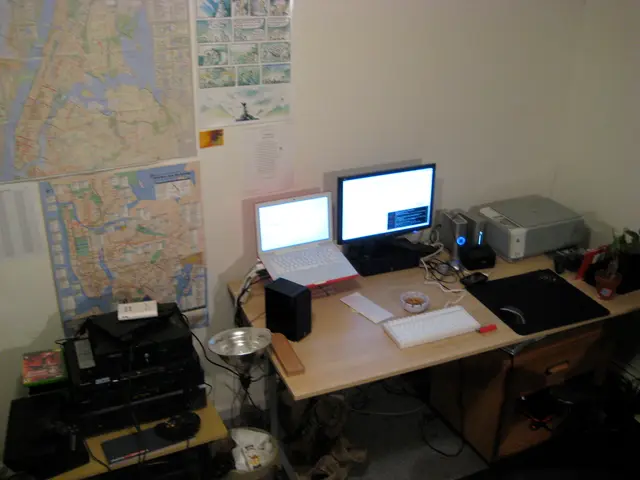Increased usage of 'bossware' signifies decreased employee privacy - companies are now monitoring productivity levels, web browsing, and device actions, potentially damaging worker morale.
In the modern digital age, monitoring has become a hot topic, with a third of British companies currently employing 'bossware' technology to track staff activities while working from home, according to recent reports. This technology, designed to monitor productivity, can range from tracking screen activity to even monitoring keystrokes. Another 14% of companies are considering adopting such systems. The most common form of surveillance, according to a survey by Software Finder, is tracking when staff log in and log out (39%), followed by browsing history (36%) and reading emails (35%). However, the actual usage could be higher, as nearly as many managers admitted they did not know what monitoring their company does. The survey also revealed that three-quarters of monitored employees lost trust in their organization due to monitoring, and were twice as likely to be looking for new roles. Conversely, 53% of managers generally support online staff activity monitoring on company-owned devices. Interestingly, fewer than three-in-ten saw it as useful for performance or to support fairness. Instead, 42% found the tools useful for compliance, and more than half saw them as a way to prevent system misuse and protect sensitive data. The use of 'bossware' is not a new concept, with a significant increase in employee monitoring by enterprises, especially with continued hybrid working practices. A study by the Chartered Management Institute (CMI) showed that 36% of companies use 'bossware' to monitor staff in the office, 32% use it on hybrid teams, and 30% for remote workers. However, the issue of employee monitoring raises concerns about trust and morale. In fact, 42% of managers are against employee monitoring, citing it as damaging trust, lowering morale, and not improving performance. One-in-six managers even said they would consider quitting if their employer rolled out such programs. The debate around employee monitoring is further complicated by instances of excessive surveillance. For example, Brazilian bank Itau laid off 1,000 of its employees after months of quietly monitoring their work from home, finding they did fewer tasks than those in the office. Some employees were even fired for spending just 20% of their time working while still billing for those hours. The Information Commissioner's Office (ICO) in the UK found that 70% of people would find it 'intrusive' to be monitored by an employer, and more than a fifth wouldn't want to work for a place that surveilled staff. Despite these concerns, the use of 'bossware' continues to grow, with some employers deploying surveillance software that tracks activities like keyboard strokes, mouse movements, websites visited, screenshots, and even webcam and microphone access to ensure productivity during remote work. However, the question remains: at what cost to employee trust and morale?








